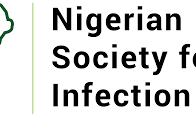ll across the world, there’s an increasing frequency of patients visiting the hospital for care but getting infected in the process. What is the role of healthworkers practicing infection prevention and control (IPC) in the reduction of such infections?The Nigerian Society for Infection Control (NSIC) hosted their 5th Annual Conference in Lagos from 15th – 16th August to answer that question.
NSIC kicked off the conference with a pre-workshop on the 14th of August that showcased the appropriate tools and methods for disinfecting and sterilizing reusable hospital equipment to reduce the transmission of infections between patients and health workers.
During the conference, health professionals from all over the country converged to discuss and debate the issue of preventing infections during healthcare through the implementation of infection prevention and control (IPC) programs which are designed to provide practical solutions to prevent harm during the delivery of healthcare to patients.

Our conclusion was that sadly most health facilities in Nigeria do not have functional IPC programs. Together, we determined that the main factors contributing to this and driving the country’s poor healthcare delivery and poor patient safety are:
- Health workers do not have access to the IPC supplies (gloves, soap, etc.) and infrastructure (clean water supply, isolation space, etc.) they need to keep themselves, their colleagues, and patients safe
- Many health facilities do not have strong monitoring and surveillance systems to track infections that are happening both within and across their facilities (you cannot stop what you do not track!)
- Nigeria does not have national or local policies to standardize, regulate and institutionalize IPC practices or programs
As a group, we put forward the following recommendations for the government and facilities across the country:
- IPC should be recognized as a discipline within healthcare and a standardized curriculum and career path for health professionals should be introduced
- Every health facility should have IPC programs with the appropriate governance structures, policies and dedicated funding and should have personnel trained and responsible for IPC to reduce the spread of infections throughout the facility

Patients have a right to be treated in a safe and clean environment with consistent standards and quality care. The basic principle of IPC is to establish ongoing processes that provide a safe environment for both health workers and patients.
As Professor Akin Osibogun the keynote speaker said, “Whenever you are confronted with a complex situation, always go back to the basics.” And the basics for healthcare workers should always be IPC!
Therefore all hands must be on deck to see to the integration of IPC in all health facilities across the country.









